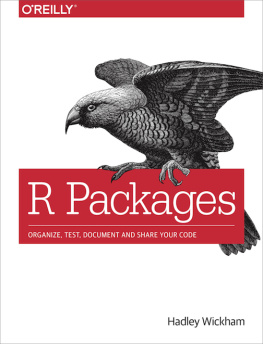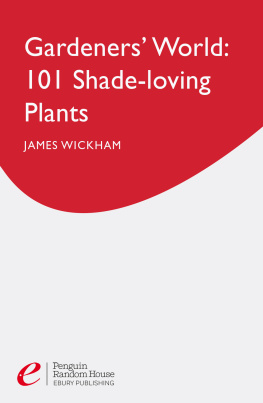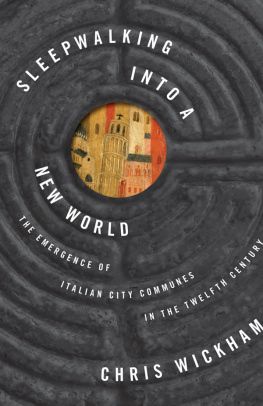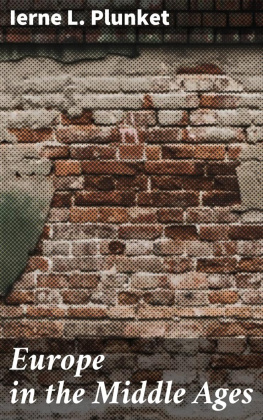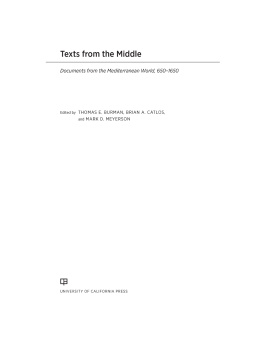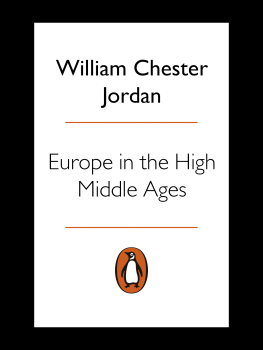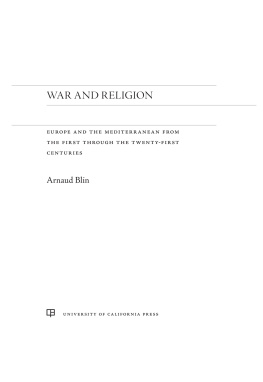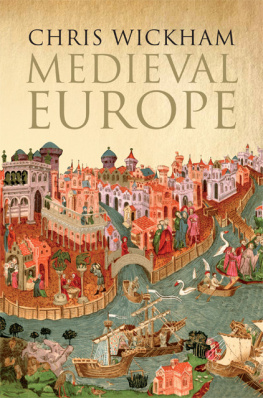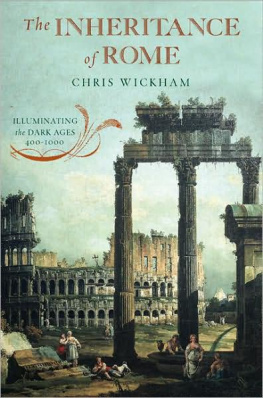Framing the Early Middle Ages
Framing the Early Middle Ages
Europe and the Mediterranean 400800
CHRIS WICKHAM


Great Clarendon Street, Oxford ox2 6DP
Oxford University Press is a department of the University of Oxford.
It furthers the Universitys objective of excellence in research, scholarship, and education by publishing worldwide in
Oxford New York
Auckland Cape Town Dar es Salaam Hong Kong Karachi
Kuala Lumpur Madrid Melbourne Mexico City Nairobi
New Delhi Shanghai Taipei Toronto
With offices in
Argentina Austria Brazil Chile Czech Republic France Greece
Guatemala Hungary Italy Japan Poland Portugal Singapore
South Korea Switzerland Thailand Turkey Ukraine Vietnam
Oxford is a registered trade mark of Oxford University Press in the UK and in certain other countries
Published in the United States
by Oxford University Press Inc., New York
Christopher Wickham 2005
The moral rights of the author have been asserted
Database right Oxford University Press (maker)
First published 2005
First published in paperback 2006
All rights reserved. No part of this publication may be reproduced, stored in a retrieval system, or transmitted, in any form or by any means, without the prior permission in writing of Oxford University Press, or as expressly permitted by law, or under terms agreed with the appropriate reprographics rights organization. Enquiries concerning reproduction outside the scope of the above should be sent to the Rights Department, Oxford University Press, at the address above
You must not circulate this book in any other binding or cover and you must impose the same condition on any acquirer
British Library Cataloging in Publication Data
Data available
Library of Congress Cataloging in Publication Data
Data available
Typeset by SPI Publisher Services, Pondicherry, India
Printed in Great Britain on acid-free paper by
Biddles Ltd., Kings Lynn, Norfolk
ISBN 019926449x 9780199264490
ISBN 0199212961 (Pbk.) 9780199212965 (Pbk.)
1 3 5 7 9 10 8 6 4 2
For LESLIE
Acknowledgements
I HAVE BEEN working on this book for nearly seven years, and have discussed issues relating to it with nearly every late Romanist and early medievalist I have met during that time; I have gained insights from too many people to list. First of all, I should like to thank those who commented on sections of the book: Leslie Brubaker, who read almost the whole text; Paul Fouracre, John Haldon, Hugh Kennedy, and Eduardo Manzano, who read sections of . They were often sharp critics, and I gained immensely from their insights, suggestions, and bibliographical references; I know they do not all agree with my conclusions.
Another group of people, partially overlapping, consists of friends with whom I started when I needed to get a sense of the bibliography of a given region: people I could not do without as guides to one area or another. These include Steven Bassett, Julio Escalona, Simon Esmonde-Cleary, Lisa Fentress, Riccardo Francovich, Hugh Kennedy, Eduardo Manzano, Ulf Nsman, Pierre Ouzoulias, Claude Raynaud, Peter Sarris, and Paul Van Ossel. I must also here express my great debt to Rosamond McKitterick, Ghislaine Noy, and Pierre Toubert, who invited me to teach in, respectively, the University of Cambridge (to give the 2003 Trevelyan Lectures), the Ecole des Chartes, and the Collge de France; the lectures I gave there are all, in more or less revised form, in this book and I gained enormously from the conversations and library accessand the time to research and writethat I had both in Cambridge and in Paris.
I benefited from ideas and bibliographical or other help from, apart from those mentioned above, Stuart Airlie, Donald Bailey, Franois Baratte, Bernard Bavant, Andrea Berlin, Franois Bougard, Monique Bourin, Alan Bowman, Luis Caballero, Federico Cantini, Gill Clark, Simon Corcoran, Bill Day, Paolo Delogu, Archie Dunn, Santiago Feijoo, Laurent Feller, Rebecca Foote, Sauro Gelichi, Sharon Gerstel, Mary Harlow, Jill Harries, Catherine Hills, Richard Hodges, Sonja Jilek, Jeremy Johns, Olga Karagiorgiou, Sean Kingsley, Luke Lavan, Stphane Lebecq, Rgine Le Jan, Wolf Liebeschuetz, Antonio Malpica, Cyril Mango, Alessandra Molinari, Jinty Nelson, Margaret OHea, Lauro Olmo, Helen Patterson, Walter Pohl, Andrew Poulter, Dominic Rathbone, Mark Redknap, Paul Reynolds, Charlotte Rouech, Riccardo Santangeli, Sven Schtte, Chris Scull, Trish Skinner, Jean-Pierre Sodini, Frdric Trement, Marco Valenti, Alan Walmsley, Mark Whyman, Ian Wood, and Enrico Zanini. A particular thanks is owed to Sue Bowen, who has spent what amounts to years typing this book, and to Harry Buglass, who drew the maps. The index was compiled by Alicia Corre. Here the list is certainly incomplete, but can be added to with some of the more specific acknowledgements in footnotes; I am also very grateful to the wide range of people who sent me their books and articles, many unpublished, including doctoral theses; I could not have written this book without you. I have tried to restrict this list to those who, knowingly or unknowingly, had a direct effect on the book; if I was to include the rest of the people with whom I have dealt fruitfully and intellectually since 1997, the list would be at least twice as long.
I must finally thank three institutions: the University of Birmingham Main Library, and the Ashmolean (now Sackler) Library in Oxford, where I did most of my researchI could not have written without the latter in particular; and the British Academy, whose granting of a Research Readership in 19979 enabled me to start this project in the first place. This book is the (delayed) result of that Readership.
Birmingham
April 2004
C.J.W.
For this paperback edition, only minor corrections have been made. There has of course been a steady stream of books and articles in the last two years which could be taken into account, and I have been greatly stimulated by the variety of critical reactions to the book, in public or private, some of which would result in modifications to the argument. But I stand by my main claims, and also by my empirical characterizations; I would not want to make any major changes to the text. Adding in new work would thus be not only an enormous operation, but also mostly cosmetic, so I have not attempted it. The book should be seen as remaining a work of 2004.
August 2006
Contents
. The regions discussed in this book and other placenames
. The Roman empire in
. Africa
. Egypt
. Syria and Palestine
. The Byzantine heartland
. Italy
. Spain and Mauretania
. Central and southern Gaul
. Northern Gaul
. Britain
. Ireland
. Denmark
In Maps 310:

AA | Auctores antiquissimi |
AEA | Archivo espanol de arqueologa |
thelberht | The laws of the earliest English kings, pp. 416 |
Aistulf | Leges Aistulfi |
|
Next page


